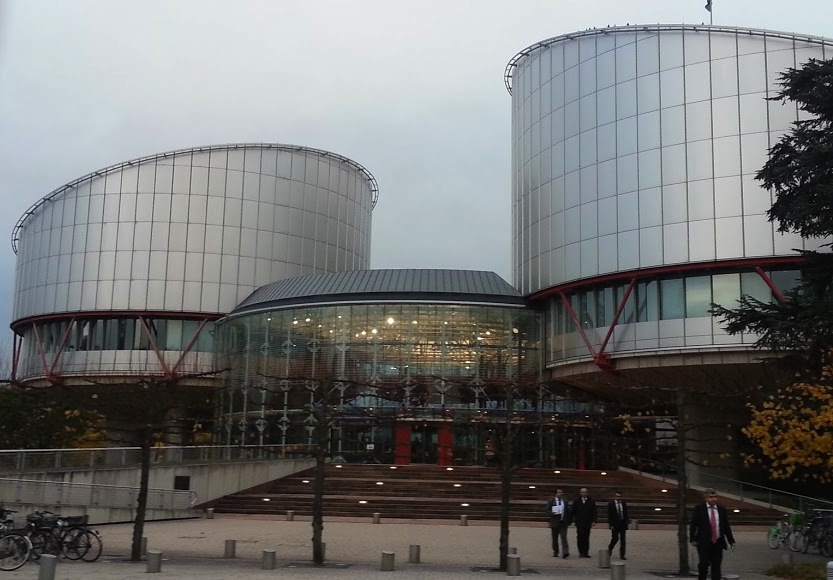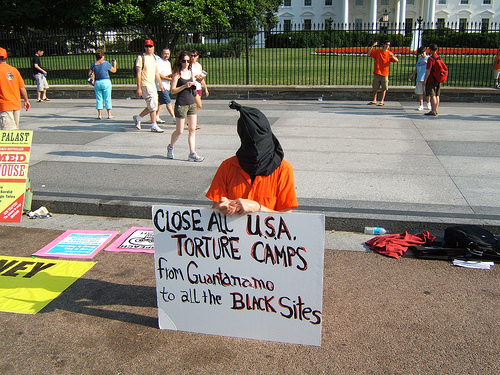
Jul 26, 2016
The ICJ today submitted to the Human Rights Committee information in preparation for the Committee’s examination of Pakistan’s initial periodic report under the International Covenant on Civil and Political Rights (ICCPR).
During its session in October 2016, the Human Rights Committee will adopt a List of Issues for the examination of the first periodic report of the Pakistan under the ICCPR in July 2017.
In its submission, the ICJ raised issues and suggested questions to be put to the Government of Pakistan concerning:
- The compliance of Pakistan’s counter-terrorism laws with the rights to life, liberty and fair trial, particularly in the context of its “military justice” system and the operation of the Protection of Pakistan Act;
- The continuing practice of enforced disappearances and impunity for law enforcement and military agencies; and
- The compliance of Pakistan’s blasphemy laws with the rights to life; freedom of expression; religion, thought and conscience; and fair trial.
This submission was based on the more detailed findings in recent reports of the ICJ.
PAKISTAN-HRC LOI SUBMISSION-Advocacy-legal submission-2016-ENG (full text in PDF)
Read also:
On Trial: the implementation of Pakistan’s blasphemy laws
Military injustice in Pakistan

Jul 7, 2016
On 5 July 2016, the European Court of Human Rights, in its judgment in O.M. V. Hungary ruled that the immigration detention of an LGBT asylum-seeker had violated Article 5 of the European Convention of Human Rights, enshrining the right to liberty and security of person.
In particular, the Court found that the Hungarian authorities had failed to make an individualized assessment or take into account the applicant’s vulnerability within the detention facility because of his sexual orientation.
The ICJ, alongside the AIRE Centre, ILGA-Europe and ECRE had intervened in this case.
The Court’s judgment has, once again, recognized the fundamental right of asylum-seekers to protection – no matter their sexual orientation or gender identity.
Background
O.M. is an Iranian national who requested asylum in Hungary after travelling to Europe via Serbia.
On arriving in Hungary in early 2014 he was arrested and placed in a detention facility, where he was kept for 58 days.
He claimed asylum based on his homosexuality and the fact that were he to be returned to Iran he faced severe penalties because of his sexual orientation, including the death penalty.
During his time in detention, O.M. repeatedly asked the asylum authority to release him from the detention facility or transfer him to an open facility due to the harassment he faced because of prejudice against his sexual orientation.
His was eventually released on 22 August 2014 and in October 2014 he was recognized as a refugee.
The Court made a strong statement in favour of the rights of LGBT asylum seekers: “…when asylum seekers claim to be a part of a vulnerable group in the country which they had to leave, the authorities should exercise particular care in order to avoid situations which may reproduce the plight that forced these persons to flee in the first place. In the present case, the authorities failed to do so when they ordered the applicant’s detention without considering the extent to which vulnerable individuals –for instance, LGBT people like the applicant – were safe or unsafe in custody among other detained persons”.

Mar 1, 2016
On 1 March 2016, the ICJ, REDRESS and the World Organisation against Torture (OMCT) made a joint submission to the UN Committee against Torture in light of the United States of America’s One-Year Follow-up response to the Committee’s Recommendations.
The joint submission focuses on two of the “principal subjects of concern and recommendations” identified by the Committee for follow up in its December 2014 Concluding Observations and Recommendations following its review of the USA’s implementation of the Convention against Torture and Other Cruel, Inhuman or Degrading Treatment or Punishment.
The two topics are “Inquiries into allegations of torture overseas” and “Guantánamo Bay detention facilities” and they are most closely linked to the original submission the ICJ, REDRESS and OMCT made jointly in advance of the State party’s examination in October 2014, entitled “Rendered Silent: Ongoing violations arising from the denial of “High Value Detainees”’ right to complain of torture and other ill-treatment”.
Given the US Government’s inadequate response, in today’s joint submission, the ICJ, REDRESS and OMCT urge the Committee to request it to provide additional information within six months in relation to compliance with the Committee’s recommendations concerning the two topics mentioned above.
USA-CATFollowUp-Advocacy-Legal submissions-2016-ENG-rev1 (full text, in PDF)

Feb 23, 2016
In January 2016, ICJ provided an expert legal opinion to the applicant’s legal counsel in the case of “X” before the Swedish Migration Agency with a view to assisting them in assessing “X”’s asylum claim.
The case in the context of which this expert legal opinion was submitted concerns a sur place application for refugee status under the Refugee Convention based on a well-founded fear of persecution for reasons of the applicant’s membership of a particular social group, namely one defined by his sexual orientation.
Sweden-Expert legal opinion sur place asylum claims-Advocacy-Legal submissions-2016-ENG

Feb 16, 2016
In mid-February 2016, the ICJ made a submission to the Committee on Economic, Social and Cultural Rights in advance of Committee’s examination of Namibia’s combined Initial, First and Second Periodic Reports under the International Covenant on Economic, Social and Cultural Rights.
In its submission, the organization drew the Committee’s attention to the detrimental impact of the extant criminalization of consensual anal intercourse between males and of other various forms of sexual activities between consenting men through the crime of “unnatural sexual offences” on the enjoyment of Covenant rights, including, in particular, the principle of non-discrimination and the right to the highest attainable standard of physical and mental health by gay and bisexual men and, more generally, by the gay, bisexual, lesbian and transgender community in the country.
The ICJ’s submission contains a number of recommendations that the organization considers the Committee should address to the Namibian’s authorities to address its concerns.
(Full text in PDF)









